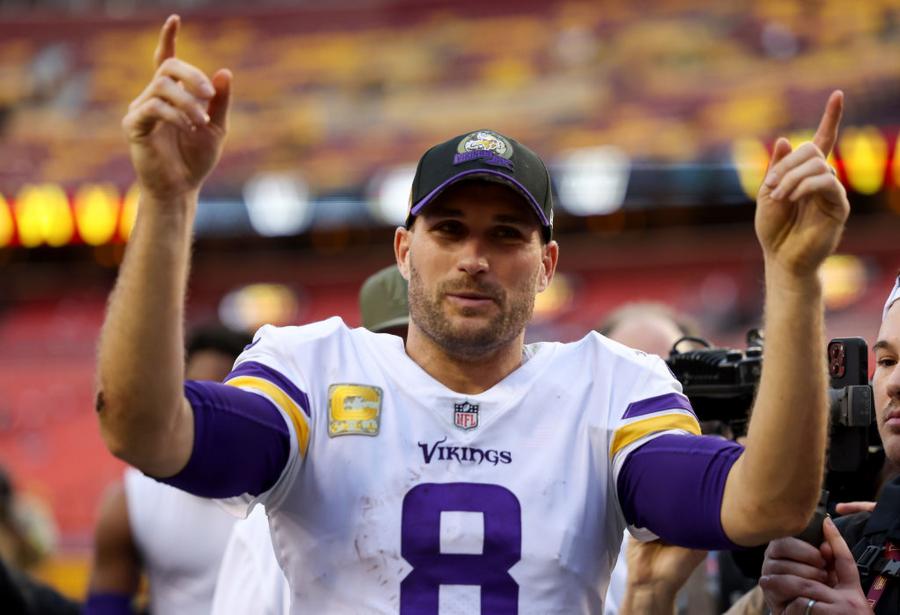We love seeing athletes bet on themselves. You’ve made it to the highest level of your chosen sport, which tends to have shorter careers than most other fields. When there’s an opportunity to take a smaller “prove it” deal now for a lucrative one in the future, you can’t fault an athlete for jumping at the chance.
Sometimes, this move backfires. For example, Dennis Schroder turned down an $84 million contract and ended up signing for the NBA taxpayer exception salary of about $5.9 million. But when betting on yourself goes right, it can be super rewarding. Just ask Kirk Cousins.
The Atlanta Falcons agreed to sign Cousins to a four-year, $180 million contract. Per Spotrac, that will put him at $411.6 million in career earnings by the time the deal ends.
Scott Taetsch/Getty Images
Let’s jump to 2012, Cousins’ first year in the league. Washington drafted him in the fourth round. Three rounds earlier, the team had selected Robert Griffin III with the second overall pick.
Griffin was supposed to be the franchise guy. But after a gnarly knee injury his rookie season — and subsequent poor handling of his recovery — Washington turned to Cousins as its quarterback. He had his best season to date in 2015, leading the league in completion percentage as Washington finished with a 9-7 record and reached the playoffs.
At this point, Cousins was still on a rookie deal. Over the next two seasons, he remained with the team on the franchise tag while Washington worked out whether it could keep him for the long term. He made nearly $44 million in those two seasons combined — more than ten times what he had earned during the first four years of his career.
Cousins continued playing well enough, even if his team only put up so-so results. He earned his first Pro Bowl nod in 2016, and after 2017, he headed into free agency. It’s rare to find elite quarterbacks on the free agent market, which made Cousins a highly desirable target. He was good but not among the top quarterbacks, so he wasn’t signed by his previous team. Instead, the Minnesota Vikings inked him to a three-year, $84 million deal.
That contract was notable for two reasons. At the time, Cousins was the highest-paid player on an annual basis. The Vikings also fully guaranteed the entire thing, which is a rarity in the NFL.
Cousins spent six seasons with the Vikings. After that initial contract expired, Cousins once again signed smaller deals. In 2020, he agreed to $66 million over two seasons, and he played last season on a one-year, $35 million contract. Both of those deals helped him avoid the franchise tag while still giving him a hefty salary.
Eight games into this past season, Cousins tore his Achilles. He might not have known it at the time, but his run with the Vikings was done. He had a stronger supporting core around him than in Washington and finished with a better, yet unspectacular, 50-37-1 record and one playoff win in three games. The only time Cousins led the league in something was in lost fumbles during the 2018 season.
Yet, as free agency began this season, several teams found themselves in need of a quarterback. Teams at the top of the draft, like the Chicago Bears or New England Patriots, will look to find talent from the college ranks. For a team like the Falcons, consistently solid quarterback play could help them win a weak division and host a playoff game. And they were willing to pay handsomely to make it happen.
It also doesn’t hurt that this year’s salary cap is the highest it’s ever been. The Falcons had that money to spend, and Cousins is reaping the benefits. He’ll be 39 by the time this deal is done, and he’ll likely be in the top three of all-time NFL earners, ahead of current and future Hall of Famers Peyton Manning, Drew Brees, and Tom Brady.
Not bad for a guy who was drafted to be a backup.

